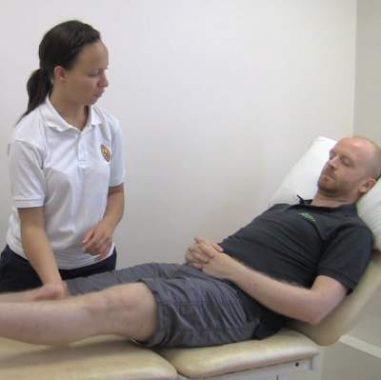First-contact physiotherapists based in general practice can deal with 99% of patients with musculoskeletal conditions without GP review, a two-year audit has found.
Analysis of data from a service set up in the Forth Valley found that only 1% of 8,417 patients who had been seen by an ‘extended scope physiotherapist’ across two practices had needed GP advice.
Most patients were directed to the physiotherapists by reception staff or after phone triage with a nurse and were seen that day or in the next one to two days.
The new GP contract in England commits to providing networks with 70% of the needed to employ a first-contact physiotherapist from 2020. However, experts warned that the results may not be replicated in England.
The results of the study published in the British Journal of General Practice, showed that 12% of patients needed a prescription and 3% a fit note but these had been provided by the duty GP without the need for an appointment.
In all 87% of the patients were ultimately managed in primary care and 60% could be self-managed with advice or a brief intervention.
The researchers also found a drop in orthopaedic referrals after the service was put in place – with only 3% passed on to a specialist, with 86% of referrals made by the physiotherapists deemed appropriate.
Physiotherapists were also trained to administer steroid injections and in both practices the numbers of injections being done increased substantially from 43 and 36 in the year before the service was set up to 251 and 169 in the second year.
A survey of 75 patients who had used the service found 97% had confidence in the physiotherapist they had seen and 92% happy with the amount of time provided.
The researchers said while similar services – with patients able to see a physiotherapist without referral from a GP – were starting to emerge throughout the UK, largely in response to doctor shortages, this is the first published data on outcomes.
NHS England have previously announced plans for better access to first-contact physiotherapists with several pilot schemes underway around the country.
Study leader Helen Turner, an extended scope physiotherapist at Kersiebank Medical Practice in Grangemouth, said the project in Forth Valley had been an ‘excellent example’ of healthcare professionals working together to tackle service pressures and improve local care.
‘The results from the first two years of our service demonstrate great opportunities exist to use physiotherapy to reduce GP workloads with up to 25% of a GP’s caseload being related to musculoskeletal conditions.’
Dr Louise Warburton, a GP with special interest in MSK in Shropshire and researcher at Keele University said it was an interesting study but the results may not be replicable in all services as it was dependent on the experience of the physiotherapist.
‘This study uses ESPs who are band 7 or 8 experienced physios and independent practitioners.
‘They are used to managing their own caseload and can probably cope well working alone in primary care.’
She said many pilots in England were using less experienced physiotherapists – band 5 or 6 – and so referral rates, etc, would not necessarily be the same.
‘I would be cautious about extrapolating to all areas as the results would not be as impressive.’
[citation – Br J Gen Pract 2019; DOI: https://doi.org/10.3399/bjgp19X702245]
Pulse October survey
Take our July 2025 survey to potentially win £1.000 worth of tokens












